Alright, folks, gather ’round for a myth that proves one thing loud and clear: even gods can get hopelessly friend-zoned.
And when a love-struck Olympian goes chasing after a nymph who wants absolutely none of it, you get a story that’s equal parts romantic tragedy and ancient Greek chaos. Welcome to the drama of Apollo and Daphne.
So, picture this. Apollo, the golden boy of the gods — literally. God of music, poetry, prophecy, sunlight… basically the guy who wins every category at the Divine Awards Gala.
He’s riding high after roasting the Python at Delphi, chest pumped, ego on fire. The guy is glowing with victory and maybe a bit too full of himself.
Enter Eros — tiny, winged, armed with arrows Eros. Apollo, in peak smug mode, decides to mock him: “Hey kid, maybe stick to playing with toys instead of shooting love arrows, yeah?” Big mistake. Huge. Because if there’s one thing Eros does well, it’s revenge. Petty, poetic revenge.
So Eros draws two arrows:
One gold, which sparks irresistible love.
One lead, which sparks “absolutely not, get away from me.”
He shoots Apollo with the gold one — boom, instant obsession.
He shoots Daphne, a gorgeous river nymph and daughter of the river god Peneus, with the lead one — boom, instant “ugh, men.”
Apollo sees Daphne and immediately turns into the divine version of a guy writing poetry in your DMs at 3 a.m. Daphne, meanwhile, wants nothing to do with romance. She’s sworn herself to a life of freedom, forests, and zero boyfriends. Basically the ancient Greek CEO of the No-Thanks-I’m-Good Club.
But Apollo is in full pursuit mode. He’s running after her through the woods, declaring love, playing the world’s most desperate soundtrack on his lyre, and Daphne is sprinting like her life depends on it — because honestly, in myth terms, it kind of does.


And when she realizes she can’t outrun him, she pulls the ultimate move: she begs her father, Peneus, to save her. He does — in a way only Greek mythology would consider a solution.
Right as Apollo is about to catch her, Daphne transforms. Her feet root into the ground, her arms stretch into branches, her skin turns to bark, and leaves burst from her fingertips. In seconds, she’s a laurel tree, silent, still, and unreachable forever.
Apollo arrives just in time to watch the woman he loves turn into a plant.
Devastated, he does what mythic men do best: makes it symbolic. He swears the laurel will be his sacred tree.
Victors will wear laurel crowns, poets and heroes will be honored with its leaves. It’s a promise, a tribute, and a bittersweet attempt at holding onto someone who never wanted to be held.
So in the end, Apollo gets his laurel — but not his love. And Daphne escapes Apollo’s chase — but loses her human form in the bargain.
It’s a story about desire, boundaries, obsession, and how sometimes the only way to get your freedom is to become something entirely new.
Daphne and Apollo: a myth that proves love arrows should come with warning labels — and that sometimes the tree has better boundaries than the god.


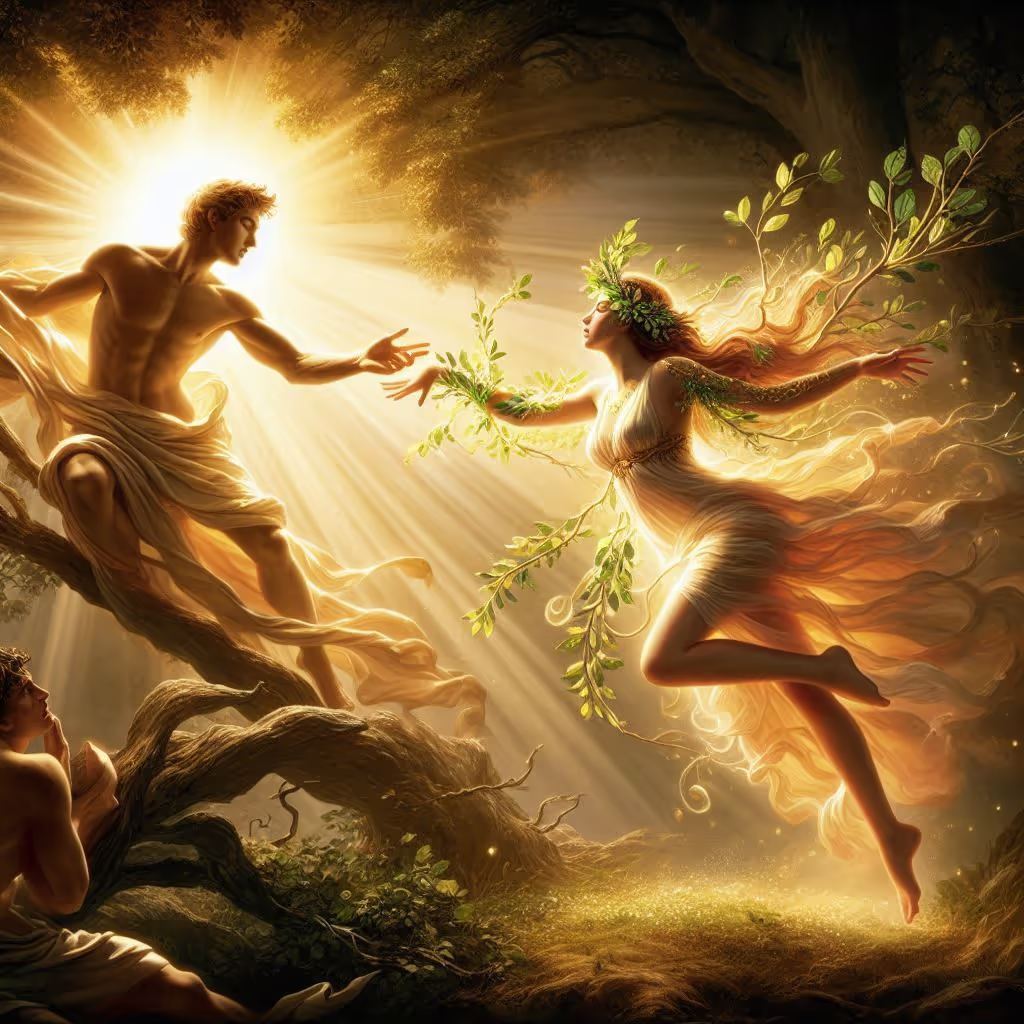


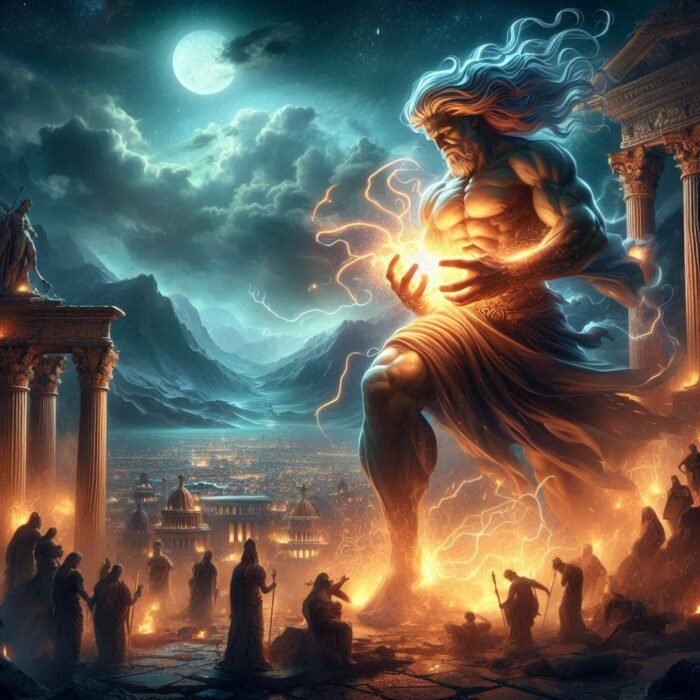
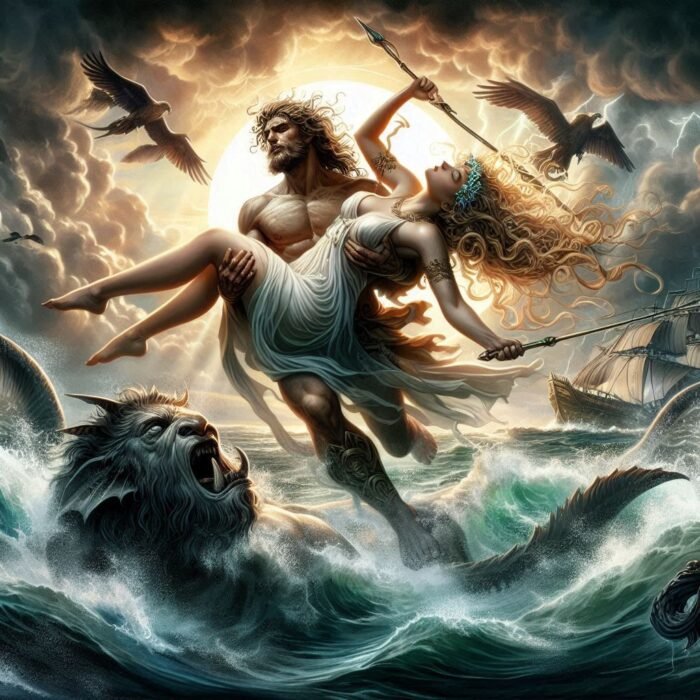
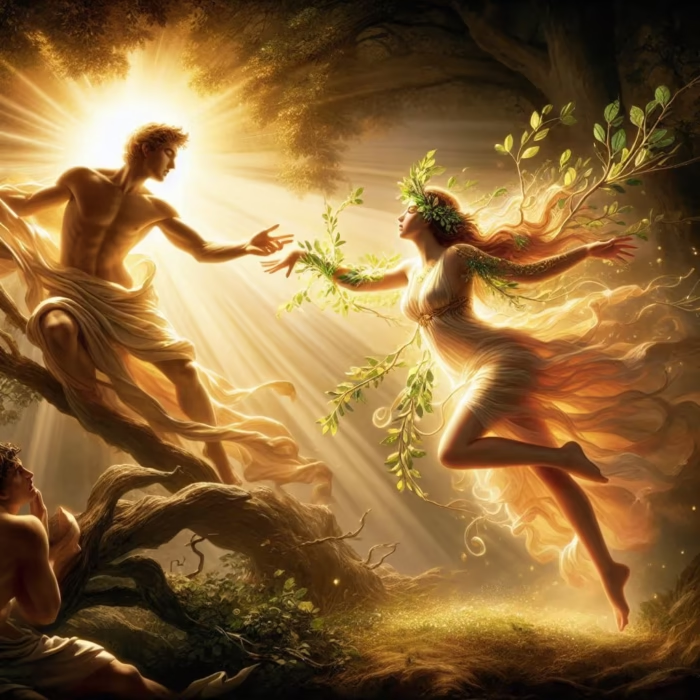


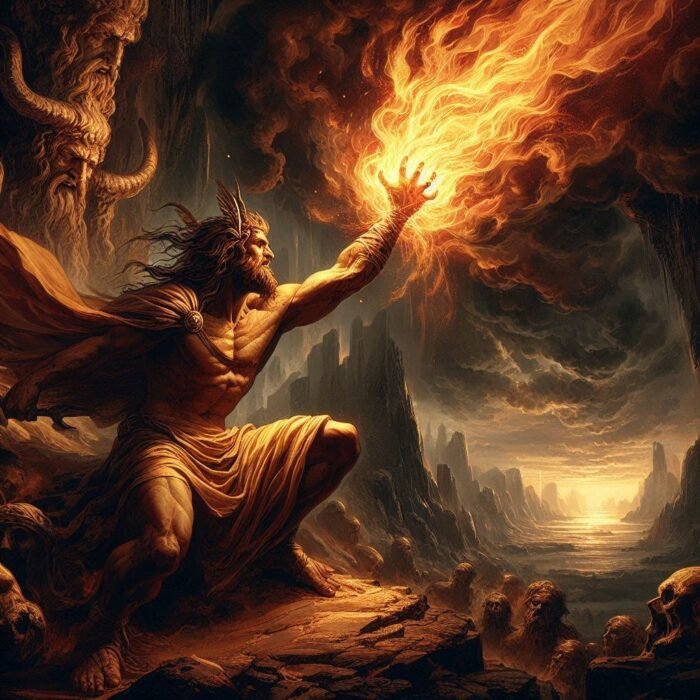

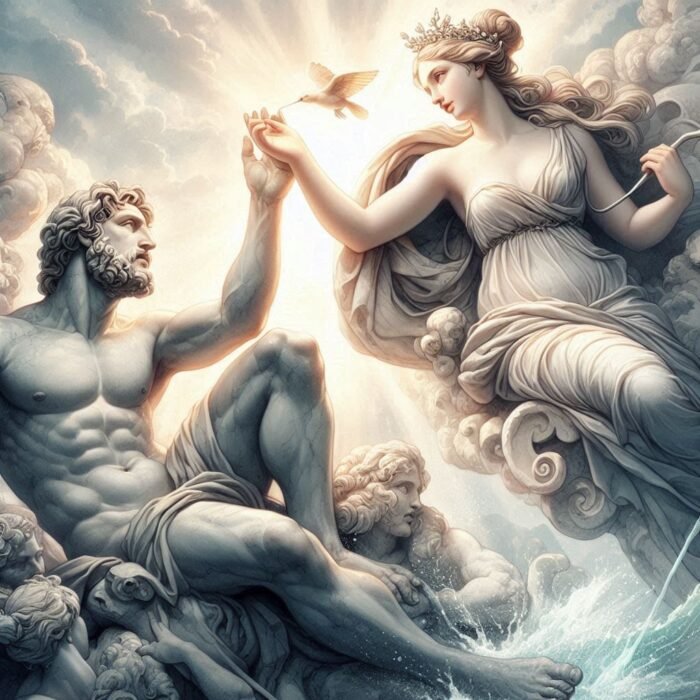
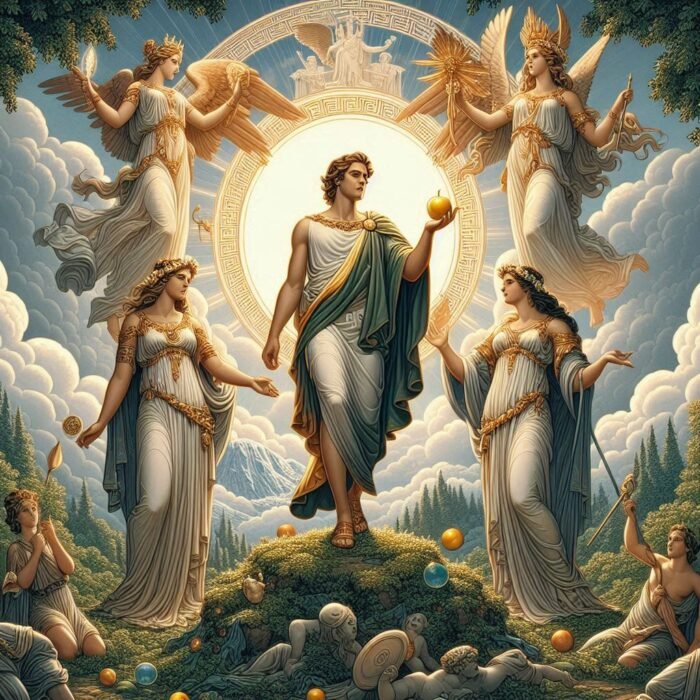

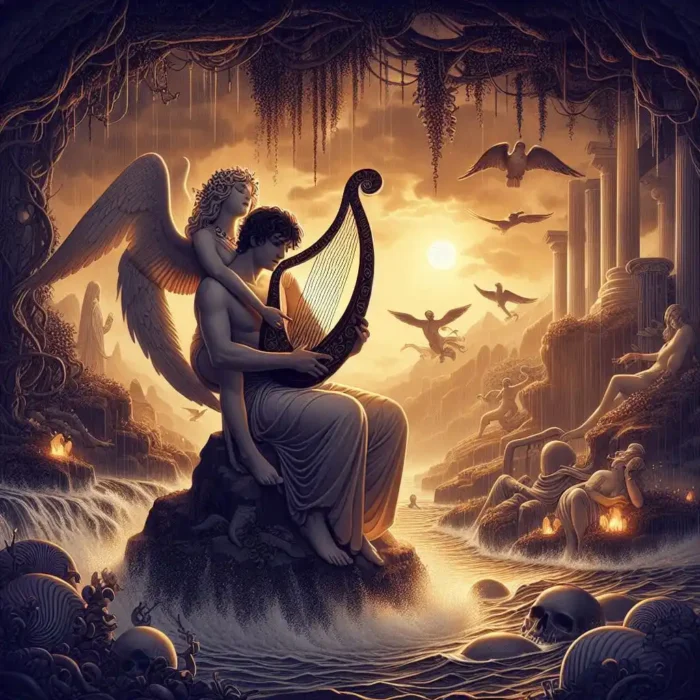
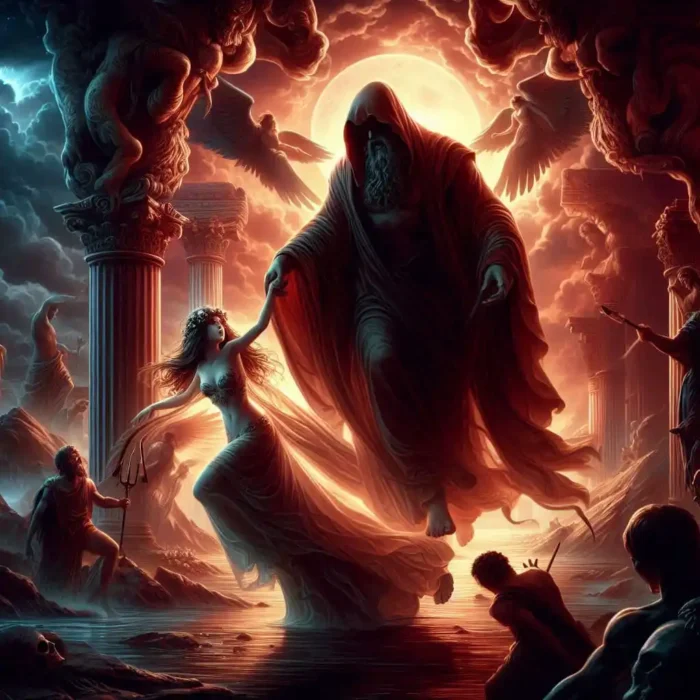


Comments